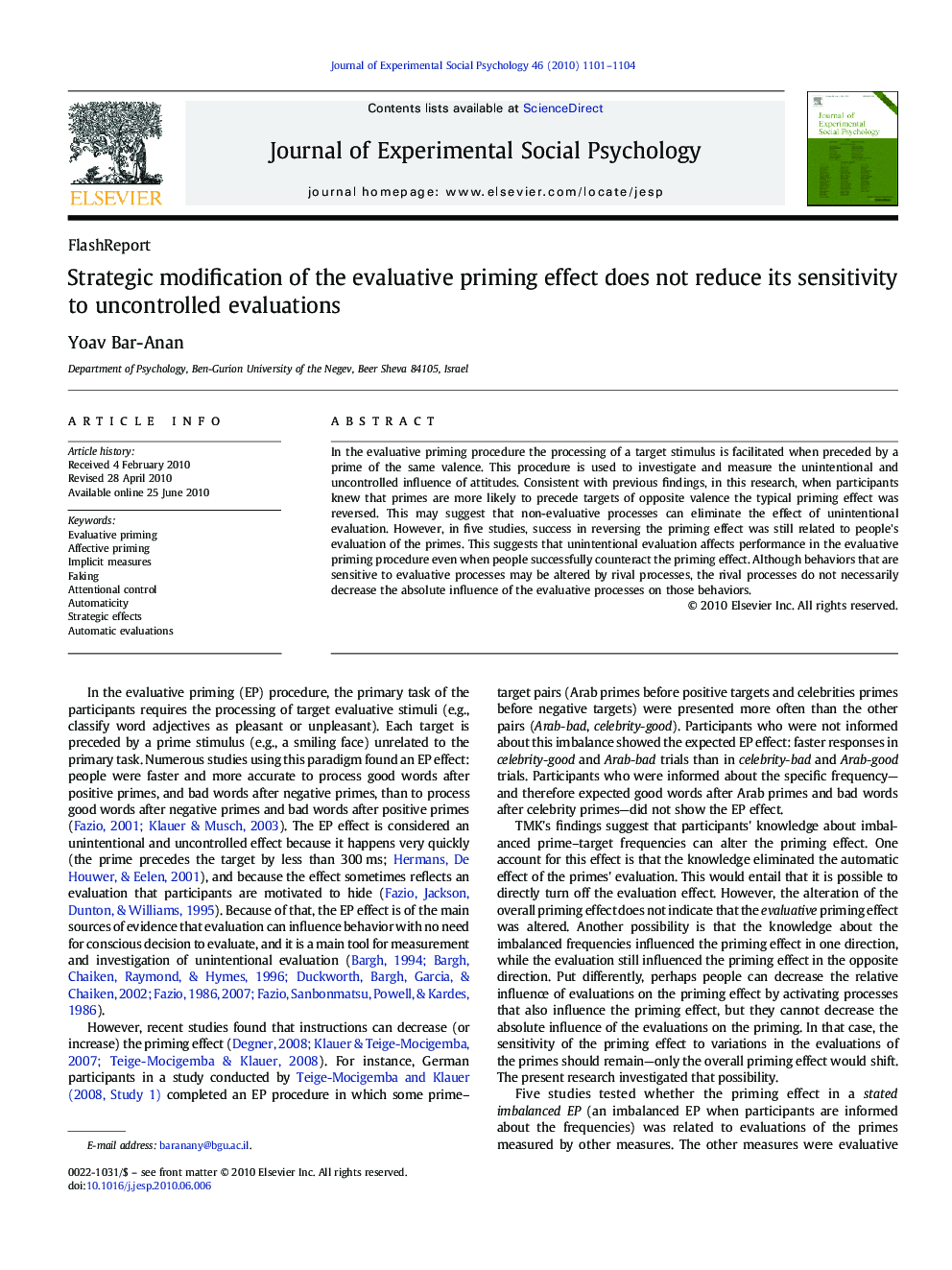| Article ID | Journal | Published Year | Pages | File Type |
|---|---|---|---|---|
| 948629 | Journal of Experimental Social Psychology | 2010 | 4 Pages |
In the evaluative priming procedure the processing of a target stimulus is facilitated when preceded by a prime of the same valence. This procedure is used to investigate and measure the unintentional and uncontrolled influence of attitudes. Consistent with previous findings, in this research, when participants knew that primes are more likely to precede targets of opposite valence the typical priming effect was reversed. This may suggest that non-evaluative processes can eliminate the effect of unintentional evaluation. However, in five studies, success in reversing the priming effect was still related to people's evaluation of the primes. This suggests that unintentional evaluation affects performance in the evaluative priming procedure even when people successfully counteract the priming effect. Although behaviors that are sensitive to evaluative processes may be altered by rival processes, the rival processes do not necessarily decrease the absolute influence of the evaluative processes on those behaviors.
